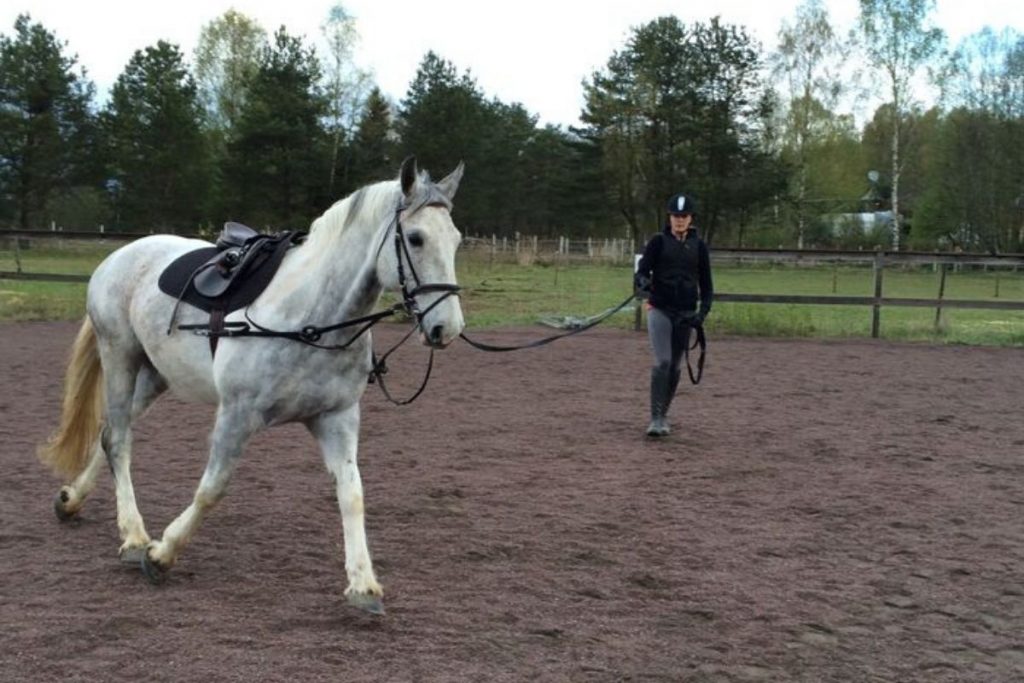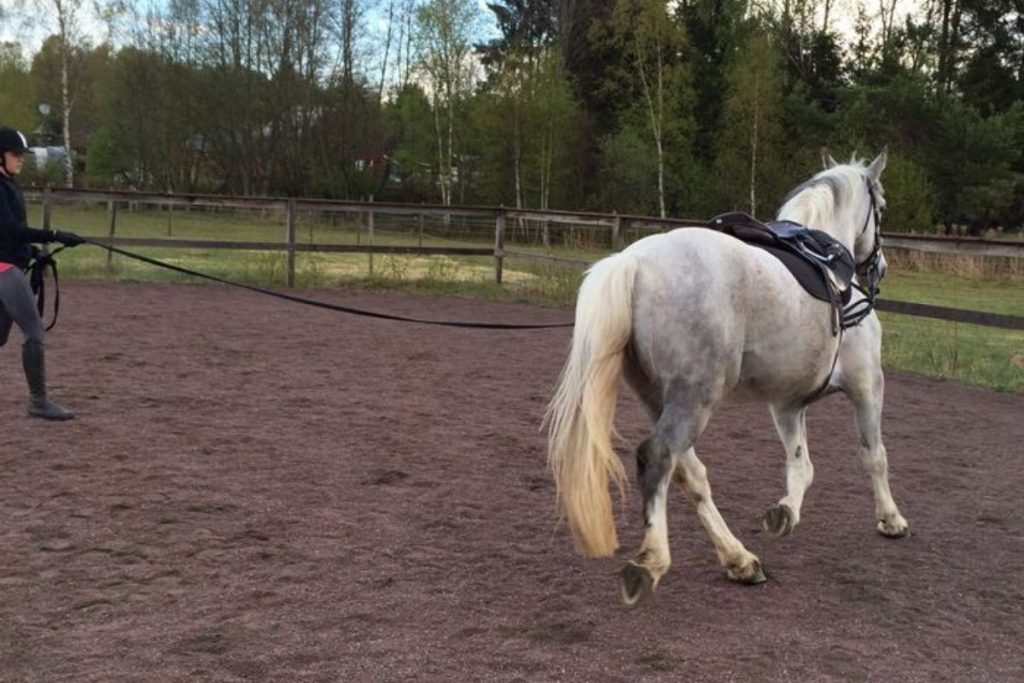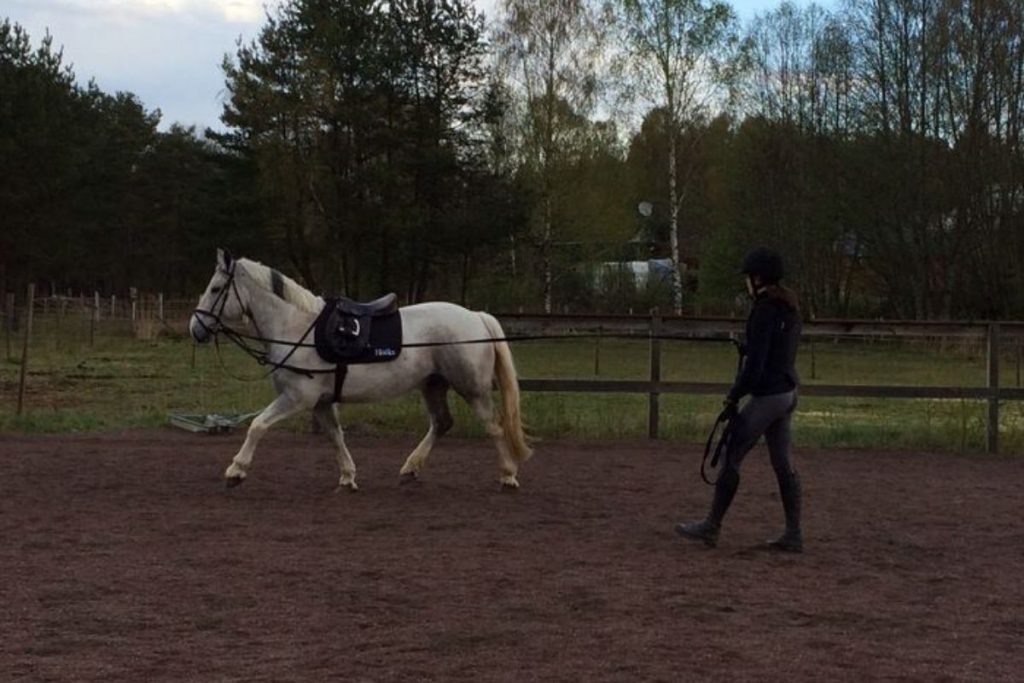When your horse isn’t listening to you, you may be tempted to think that he’s just hardheaded, but is that really the case? There are a few reasons why your horse won’t listen to you, and once you’ve identified the issue, it’s not too difficult to sort the situation out.
So, why won’t your horse listen, and what should you do? Three reasons a horse won’t listen include:
- They don’t understand what you’re asking of them
- They’re not physically or mentally capable of performing that action
- They just don’t want to do what you are asking.
To combat this, you’ll need to put more work into training, slow down on exercises, or check for underlying issues.
In this article, we’ll be discussing in further depth why your horse won’t listen, how to deal with their refusal, and what you can do to make the relationship with your horse a trusting and fun one.


Reasons Your Horse Won’t Listen and Solutions
Here, we’ll be covering the three main reasons — mentioned in the introduction — why your horse may not be listening to you and a few ways you can solve the problem.
- Your Horse Doesn’t Understand What You Want Them to Do
The first reason why your horse may not be listening to you is that they just don’t understand what you’re wanting. This is especially common when riders are dealing with a young horse or when riders purchase a new horse that they are not yet familiar with.
If you’re riding a young horse that’s just been broke, it can take some time for them to understand the relationship between the physical pressure you apply with your heels to their sides and the correct action in response to that pressure.
For example, your horse may be walking and trotting just fine when you apply pressure; but when it comes to cantering, they stop altogether or just refuse to increase their speed from a trot. An incidence like this may be due to the fact that they’ve never been trained to go beyond a trot.
What to do: The answer to misunderstandings between horse and rider is patience on the rider’s part and repetitive training. Whenever you practice or train your horse to do an action, you must be consistent.
Using the example from the previous paragraph, if you get your horse to a trot by applying pressure and then release the pressure immediately, your horse is unlikely to respond by cantering (since they haven’t learned it). Rather than applying pressure and releasing right away, keep the pressure applied gently with your heels for an extended period. This will encourage your horse to look for a way to release the pressure they’re feeling, and eventually, speed up to a canter.
Keep in mind that your horse may not connect the dots the first few times you train. But with consistent training, they will catch on.
- Your Horse isn’t Mentally or Physically Capable of Performing
It should come as no surprise that horses can feel discomfort both physically and mentally when they’re put in certain situations, places of unfamiliar surroundings, and so forth. Which brings us to our second reason why your horse probably isn’t listening — they can’t bring themselves to do it.
This can mean quite a few things.
- They may be experiencing pain. Perhaps the saddle is sitting awkwardly on their back, the bit could be rubbing against a sore in their mouth, the girth could be pinching their sides, or any other piece of their tackle may be improperly positioned, leading to discomfort.
Anything physical that is unsettling to your horse will cause them to lose focus and, as a result, not respond to what you’re trying to get them to do.
- Something may be bothering your horse mentally. This could be noisy distractions from animals or people nearby, the sound of heavy equipment or a highway, rustling in a nearby bush or grass, or perhaps they’re afraid of going through tight spaces (like into a trailer).
A horse’s main goal is survival and self-preservation. If something in their surroundings makes them nervous, if they’ve had a bad experience with a specific situation in the past, or they’ve never been around certain objects experienced certain sounds, this can mentally halt them from performing how you expect.
What to do: Determine where the discomfort is coming from, whether it be physically or mentally. If there is a physical issue, opt for taking your horse to the vet or alter their gear to fit them more comfortably. If there is a mental issue, slowly introduce the object or sound that your horse is afraid of to them. Over time, the horse will get used to these events and be relaxed whenever they occur.
- Your Horse Just Doesn’t Feel Like it
Sometimes, no matter how well trained a horse is, how many hours you spend working, or how evolved your horse-rider relationship is, they will refuse to do what you ask just because they don’t want to. You may be able to tell that this is the reason your horse is reluctant to perform a task if they’ve already performed that task well in the past.
What to do: If this is the case, and your horse just doesn’t feel like it today, do not force them physically to do as you wish. First of all, a horse is much bigger and stronger than you. This means that they have the upper hand physically and could most definitely harm you if you push them too far. Secondly, there’s no reason to stress a horse out. Doing so could result in a damaged relationship and deteriorate the trust your horse has in you.
Simply untack the horse, let them out to pasture, and try again tomorrow. Simple! Avoid giving any special treats, though, as you don’t want to reinforce wrong behavior.
Dos and Don’ts When Dealing with a “Stubborn” Horse
In this section, we’ll be giving you a few tips as to what to do and what not to do when dealing with a horse that isn’t listening.
Correct actions on your part during the difficult times are essential to building and maintaining a healthy relationship with your horse. Making the wrong moves could have the exact opposite effect, increasing the issues you’re already putting up with.

Do:
- Reward for good behavior. Whenever your horse does what you want them to, whether that be by proceeding to a faster gate whenever you apply pressure or perform some other task when prompted, you should reward them by releasing pressure or by giving treats. This is reassuring and will teach your horse what is correct and encourage them to continue that action in the future.
- Ask yourself if a task is reasonable. Don’t try to get your horse to do something that isn’t reasonable, either physically or mentally.
- Take a break from constant training exercises. Your horse can get bored, too. And if you’re training too much in one area day after day, they may start to resist.
- Be patient. If your horse is having a hard time, be patient, and keep up the work. They’ll come around.
Don’t:
- Be physically forceful. This can break down the bond you have with your horse.
- Reward bad behavior. If your horse does something incorrectly, don’t be mean about it, but don’t reward it with a carrot, either.
- Be inconsistent. Consistency is key in getting your horse to perform rightly. If you’re not consistent in training, you’ll only confuse them further.
